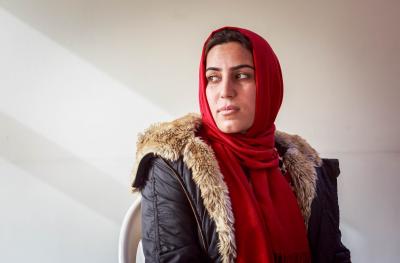When the Violence Against Women Act passed in 1994, problems such as domestic abuse passed a threshold out of the familial, private sphere to become a community issue with a community-based response. Each time the act—or VAWA—expired, it was reauthorized and expanded to protect more women in more situations. The most recent successful reauthorization in 2013 included provisions that broadened protections against gender-based violence to include LGBTQ+ people, immigrants, and tribal members, while working towards prevention by educating people about sexual violence.
On this 26th Anniversary of that first passage, we look back on nearly a year of stalled progress. On February 15, 2019, VAWA once more expired. The bill for its reauthorization followed the legacy of previous iterations in continuing to widen protections—a bill the House of Representatives passed in April 2019 before halting at the Senate.
Despite VAWA’s expiration, its improvements to federal law remain in effect. And so far, Congress has continued to provide funding for the act’s grant programs to address gender-based violence.
What hangs in the balance is whether and how we move forward to secure a future of safety and equality for women.
COVID-19 has imperiled that future. While social distancing addresses viral issues on the public health spectrum, on the other end are women and girls forced to shelter with abusers while isolated from support and resources. The economic impact of the pandemic has only made women more vulnerable by affecting income, financial security, and worsening the stressors that can increase domestic violence.
When negotiations around the bill resume, it’s clear that we’ll need to reevaluate how to bring a holistic approach to responding to gender-based violence and preventing it. The immediate hurdle, though, is getting people to even prioritize violence against women and girls and to recognize it as a societal problem that affects everyone.
That’s not unique to the United States.
According to UN Women, more than 243 million women and girls around the world have experienced sexual or physical violence at the hands of an intimate partner. That’s just in the past year. To look at it from another vantage point, 1 in 3 women has experienced or will experience physical or sexual assault.
Just as coronavirus has worsened violence against women in the US, so it has for women globally. For women living in fragile, conflict-affected countries, poverty, and extreme gender discrimination, the risks are even higher. On top of the economic anxiety that abets abuse, they lack access to support and resources—either because they can’t afford it or live too far.
In places like Nigeria, women are demanding nationwide adoption of laws like VAWA to provide support and justice for survivors, especially as perpetrators felt emboldened to assault more women during the pandemic.
What will it take to achieve a future where women’s safety matters?
Survivors of gender-based violence must be at the table for global decisions. Investing in women’s leadership was already crucial before the pandemic. The voices of women affected by violence are even more important if we will recover from the multiple effects of the pandemic, where women carry the heaviest burden.
Alongside protective legislation, we need to continue changing perceptions and understanding of gender-based violence to recognize injustice. If women don’t feel comfortable seeking justice, law enforcement only goes so far. We must also stay vigilant in shifting social norms to prevent violence against women from even happening.
Since the passage of VAWA in the US, we’ve made progress towards gender equality and peace domestically and internationally. Sometimes, it happens in small steps, sometimes in long strides. But what we cannot afford is to stand still and risk regressing. Nothing less than the future of women is at stake.

